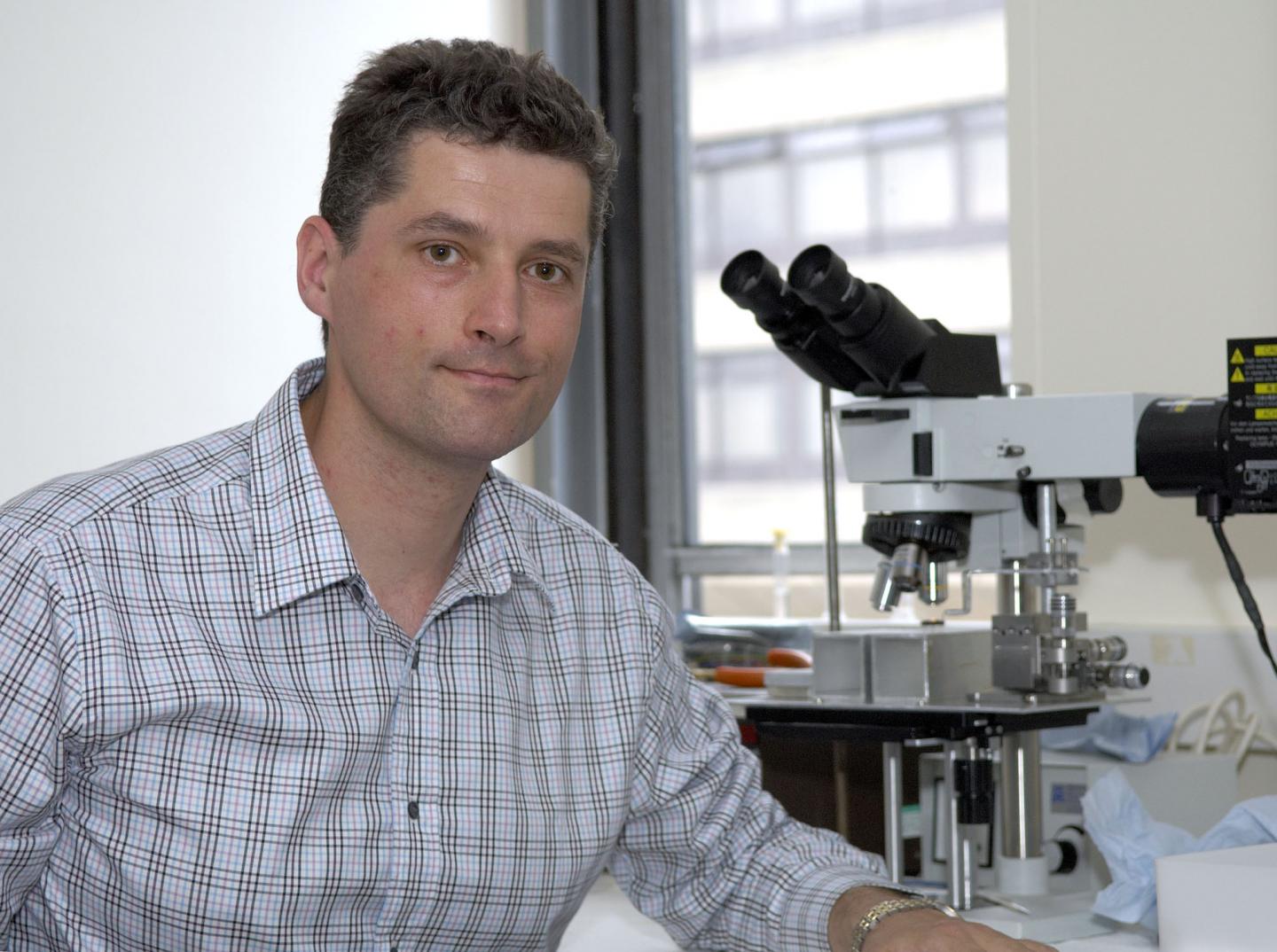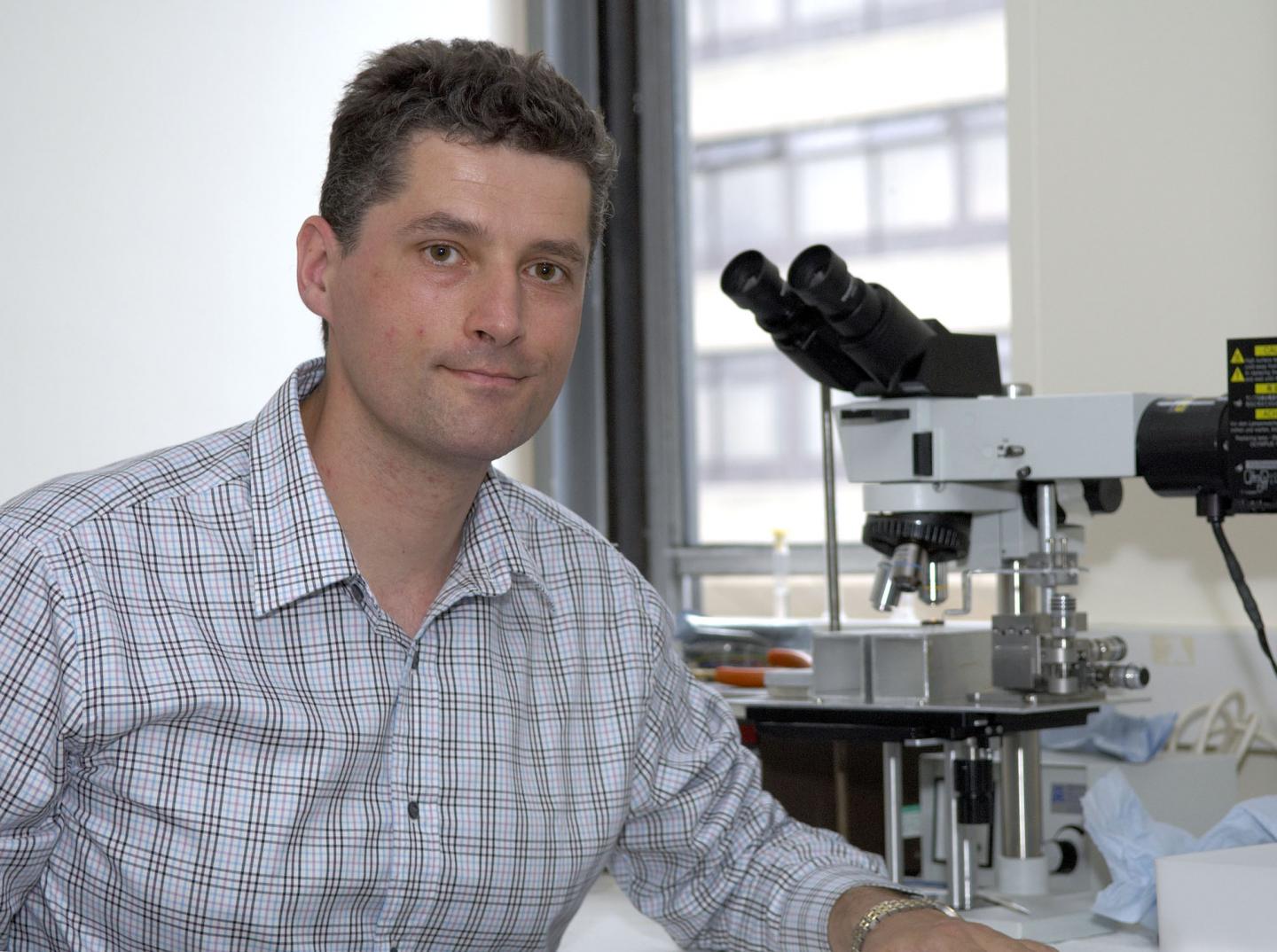
Credit: University of Bath
Creating a new generation of advanced pacemakers which adapt to the demands of a patient's body is the goal of a new €5M international research consortium led by the University of Bath.
This award from the H2020 Future Emerging Technology programme of the European Commission will enable the development, testing and validation of fit-and-forget bio-electronic implants that respond to physiological feedback in real time.
The Bath team led by Dr Alain Nogaret has developed physical models capable of predicting neuron behaviour and small neural devices which have proved effective in reversing the effects of heart failure. The consortium now brings together the resources needed to expand this research and translate it into therapies for chronic cardiorespiratory disease.
The technology developed by the Bath team aims to provide therapies for cardiac arrhythmias, heart failure and other conditions such as sleep apnoea and hypertension, extending patients' lifespans and improving quality of life.
Current pacemakers rely on sensors like accelerometers to determine the level of cardiac activity needed. These occasionally provide inadequate adaptation. This new solution will rely on multiple sensors to provide a more physiological response for the patient and better diagnostic tools for the physician. In addition, a number of chronic diseases, such as heart failure, currently have no cure through existing approaches.
In contrast a critical innovation of this project will be to make use of the principles of nonlinear science which have provided competitive advantages throughout evolution but are uncommon in conventional device design.
Nonlinear systems are ubiquitous in biology which means that outputs from systems do not vary proportionally to inputs. Designing a pacemaker using technology mimicking neurons will let the pacemakers respond to inputs nonlinearly, and therefore more realistically and appropriately for the patient. By processing data streams from multiple sensors the new devices will respond accurately to the patient needs.
Dr Alain Nogaret from the University of Bath's Department of Physics said: "This is an exciting research area where Physics and Physiology come together beautifully. This H2020 FET award recognizes the work conducted by the Bath team and its collaborators and the importance of combining sophisticated models with the latest advances in medicine to improve patient welfare."
The Bath-led CResPace (Adaptive-Cardio-Respiratory Pacemaker) consortium brings together academic researchers from the Universities of Bristol, Zurich, Wien, Utrecht and Brno, and industrial research teams at Microsemi and Medtronic.
As a global semiconductor solutions provider, Microsemi will leverage its unique expertise in ultralow wireless and miniaturization to realise system electronics. As a major medical device company Medronic will work with University of Bath to develop advanced sensor technology.
H2020 FET awards are highly competitive and in this round only five per cent of proposals were awarded funding.
Dr Nogaret founded Ceryx Medical Ltd, a spin out company from the Universities of Bath and Bristol, which makes bio-electronic implants for heart failure. This grant will allow the technology to be taken to the next level.
###
For further information, please contact Chris Melvin in the University of Bath Press Office on +44 (0)1225 386 319 or [email protected]
Notes
The University of Bath celebrates its 50th anniversary this year as one of the UK's leading universities both in terms of research and our reputation for excellence in teaching, learning and graduate prospects.
In the REF 2014 research assessment 87 per cent of our research was defined as 'world-leading' or 'internationally excellent'. From making aircraft more fuel efficient, to identifying infectious diseases more quickly, or cutting carbon emissions through innovative building solutions, research from Bath is making a difference around the world. Find out more: http://www.bath.ac.uk/research/
Well established as a nurturing environment for enterprising minds, Bath is ranked highly in all national league tables. We were chosen as the UK's top university in the Times Higher Education Student Experience Survey 2015.
Media Contact
Chris Melvin
[email protected]
44-012-253-83941
@uniofbath
http://www.bath.ac.uk
############
Story Source: Materials provided by Scienmag





